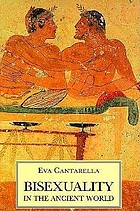#pride rome
Text


AKUDAMA -- QUЭЭЯ ⛓ K1ИK 🦾 C¥BЗЯ 🔊 TЭСHИØ #60 -- PRIDE
Last Saturday I had the pleasure of experiencing the Pride in Roma 🇮🇹 seeing the trucks, people and supporters passing the Colosseum was such a beautiful image 🌈 every time when joining a pride parade, I can see so much love and can’t help but imagine a world where love abounds in every corner and every moment 🫶 a world we aspire to create and a world we should never stop fighting for 🖤
QueeResistenza was / is this year’s slogan of pride in Rome / Italy - a word that means queer resistance and existence. A march for the rights of queer people and recognition against a government that wants to erase them. The pride showed beautiful diversity with 34 amazing floats, music and speeches - and a million people strong, according to the organizers. Also, the mayor of Rome joined and supported the families of same-sex couples. It was a beautiful day of love and solidarity and I’m even more excited to join this weekend’s pride parade in my current home base Torino 🏳️🌈
In my previous post you saw the start of the pride parade at Piazza della Repubblica and this video is the last hour before the end of the parade at the Colosseum - hopefully the videos get at least a small percentage of the actual feelings across at this great festival ✨ The artwork on the images is my idea of a futuristic Techno afterparty after the Roman Pride, I hope you like it 💋
#queer#cyber#techno#퀴어#cyberpunk art#queer rave#queer techno#futuristic#아쿠다마#cyberpunk#queer couple#queer love#pride#roma#QueeResistenza#roma pride#pride rome#roma pride 2023#pride rome 2023#pridemonth#pride 2023#queer resistance#pride roma#queer pride#pride roma 2023#lgbt pride#pride italy#happy pride month#pride italia#pride parade
44 notes
·
View notes
Text
I'm NOT going to say this again
Classic Texts are those that are considered part of the literary canon. Some examples are Pride and Prejudice, The Great Gatsby or To Kill a Mockingbird.
Classical Texts are texts that originate in classical times from Greece and Rome. Some examples are the Iliad and Odyssey, Antigone, and Plato's and Sophocles's works.
Please, for the love of god, get it right
#classic literature#classical literature#classics#ancient greece#the odyssey#mythology#the secret history#light academia#dark academia#the iliad#the oddyssey#pride and prejudice#the great gatsby#to kill a mockingbird#rome#antigone#plato#sophocles
711 notes
·
View notes
Text

Felt cute
#gay#gaymer#hairy#beard#gayuk#single#gaytiktok#fun#tiktok#lgbt#otter#pride#holiday#mental health#england#rome#italy#drinks#drunk#0
150 notes
·
View notes
Text

On this day in history, March 15th, we remember the infamous event known as the Ides of March, when Julius Caesar, the powerful Roman dictator, was assassinated in 44 BCE.
The assassination took place in the Roman Senate, where Caesar was stabbed to death by a group of senators led by Brutus and Cassius.
This event marked a significant turning point in Roman history, leading to political upheaval and the eventual rise of the Roman Empire. The phrase "Beware the Ides of March" from Shakespeare's play "Julius Caesar" has since become a symbol of betrayal and conspiracy.
🔪:
https://bi.org/en/famous/julius-caesar
#lgbt#queer#bisexuality#bi#lgbtq#lgbtqia#bi pride#bi visibility#bivisibility#representationmatters#julius ceasar#we should totally just stab caesar#ides of march#stabbing#lgbt history#history#roman empire#roman history#ancient rome#rome#stabbed in the back at home#backstabber
13 notes
·
View notes
Text
signs i saw during pride




#third one is like “raised by my larents”#there were so many “only for the brave” signs#and taylor swift#non binary#pride#rome#louis tomlinson#taylor swift#good omens
46 notes
·
View notes
Text

I’m back from Pride 🏳️🌈 💕🐱
My Bi ass is happy and full of glitter ✨
#pride month#lgbtq#aestehtic#golden hour#rome#lgbtq community#lgbtq positivity#lgbtq+#lgbtq pride#biseuxal#queer pride#queer#bisexual
53 notes
·
View notes
Note

Hey I made this thing
HELP????? I feel like these are the four horsemen of me trying not to curse in front of patients or children at work 💀 the secret fifth answer is oh my goodness oh golly oh gee
#yes I am an old woman#old woman trapped in young man body pride#rome’s wonderful moots! <3#the marvellous max#not cm#rome’s got mail!
9 notes
·
View notes
Text

Love at first sight
#roman empire#ancient rome#fantasy ai#ai generated#aiartcommunity#ai artwork#ai art#gay pride#ai art gallery#ai fantasy#fypage#black ai art#gay men#digital art#muscle#muscular#ai#romance
20 notes
·
View notes
Text

Everybody, do yourself a favour and read this. It's written super good with sources and while it is not meant as an easy read (it's still an essay), Cantarella is an amazing writer and classicist
I love the part where she states that by telling us that Nestor goes to sleep with his wife right after/before having told us that Telemachus shares the bed with Pysistratus, Homer is basically equalling the two boys' relationships to that of a married couple
52 notes
·
View notes
Text
Terrible news, TERRIBLE NEWS
Roman Senator and self-declared Commander in Chief Julius “Venus” Caesar is FUCKING DEAD
For 2068 years now!
#ides of march#julius caesar#rome#roman politics#european history#murder#politics#gay#pride#gay crime
9 notes
·
View notes
Text
In honor of pride month:
MCR lyrics that are a little 💅🏻









#reblog with more if i missed any. these are the ones i could think of offhand#mcr#my chemical romance#mike hemical rome ants#pride month#lgbtq#lemon media
48 notes
·
View notes
Text

Hands up if this Halloween you’ve worked all weekend, attended 0 parties, dressed up in 0 costumes and resentful to all those that did manage to have a fun Halloween 🙋🏻♂️🙋🏻♂️🙋🏻♂️
#gay#gaymer#hairy#beard#gayuk#single#gaytiktok#fun#tiktok#lgbt#otter#pride#holiday#mental health#england#rome#italy#drinks#drunk#0#halloween#spookyseason
163 notes
·
View notes
Text


went to the Rome Pride Parade with my husband today! had fun with our Tom of Finland fans :3
31 notes
·
View notes
Text
Hi lovelies,
Guys. This blog. Is one years old today! Woah. Icl I’m really bad at sticking to things so the fact that we managed to get a post every week for a year is pretty cool, so thank you all :)
As it’s pride month (happy pride!!) I’ve been seeing a lot of things on Twitter celebrating queer figures from classical antiquity, and whilst there were definitely queer figures to be celebrated, I think there is a lot of misconceptions about sexuality in the ancient world (especially Greece and Rome). So today I thought it would be cool to talk about male and female sexuality in the Ancient Greece and Rome. Quick trigger warning, there are mentions of pro5tituti0n, r4pe, and sl4v3ry, so read at your own risk and please stay safe <3
Okay so just some quick things to understand. The term ‘homosexual’ wasn’t coined until the the late 19th century, and the word bisexual until 1892. In regards to Ancient Greece, it was a largely homosocial, if not ‘homosexual’.
So starting off with Ancient Greece. Potential sexual partners for men included other free men (in the realms of pederastic relationships), wives, pro5titut3s, and both male and female slaves. Pederastic relationships were the main form of homosexual relationships and it was basically a socially acceptable, educative and erotic relationship between an adult male (mid-20s to 30s) and a younger male (mid-to-late teens to early-twenties). The older lover was called the erastes (lover) and the younger was called the eromenos (beloved). The erastes had to pursue the eromenos (usually at the gym) and it was his role to provide education for the younger in the areas of politics, philosophy, rhetoric, and social customs (basically how to be a good citizen). In return, the eromenos would provide the erastes with sexual pleasure, but key point it wasn’t penetrative pleasure because (oh no) that would be too gay. Stupid I know, but basically penetrative s3x would, to them, make one of them ‘feminine’ and in a highly highly misogynistic society that just wasn’t the done thing. But there is evidence to suggest that quite a few men ignored this social convention. For example, in Aristophanes Frogs, they mention a politicians called Cliesthenes who has broken this tradition and in Plato’s Symposium, Pausanias and Agathon. Anyways! The erastes was chosen for his beauty, so the more beautiful you were the better erastes, and therefore education, you would receive. It is really important to note that for the erastes, this wasn’t allowed to be his primary sexual relationship, in that it was expected of him to be married and that his primary relationship was for the purpose of childbirth. Another partner for men in Ancient Greece was was pro5titut3s, and there were two levels of this. The first was the pornoi, who were ‘street workers’ and were slaves (male or female) owned by br0th3l owners. The second levels was the hetairai who were highly educated female courtesans, a mix of free women and slaves, and were primarily seen at drinking parties.
There is little that is know about the sexual partners of women in Ancient Greece but its largely agreed that women could only have male/female relations with their husbands, but as long as it didn’t get in the way of having children, they could also engage in relations with other women. Sappho’s works suggest that this was often the case before marriage.
In Ancient Rome, the potential sexual partners for men included their wives, infames (male or female), slaves (male or female) and extra marital affairs. So starting off with infames, this was a person- that because of their profession) had no legal status in Rome (so actors, gladiators etc…). Because of the focus on the active and passive members of the relationships, the free man always had to be the ‘active’ and the infames the ‘passive’. Generally when it came to homosexuality, romans did not have pederasty and if a roman man wanted to have sex with another man they could as long as they weren’t the passive one, because if a freeman was the passive one it would damage his virtus. Again, like in Ancient Greece, this wasn’t a mans primary relationship and he is still expected to have a wife for the purpose of childbirth. Because of this, relations with male slaves became popular and the term ‘puer delicatus’ (delicate boy) was often applied to slave boys brought specifically for this purpose. Similarly to Ancient Greece, it was encouraged for men to have relations with pro5titut3s and exploit household slaves. Adultery was, however, outlawed but the Lex Julia. BUT, this was hugely hugely unpopular and historian Gaius Suetonius described the reaction as ‘open revolt’. This suggests that extramarital affairs were accepted and popular. Ovid literally has a whole book about pursuing married women and succeeding, which tells you all that it needs to.
In regards to women in Ancient rome, there again isn’t a lot that is known. But Ars Amortia book 3 suggests that women did have extramarital affairs and some form of sexual liberty.
In all, heteronormativity wasn’t as enforced in the ancient world because, in all honesty, they cared more about who took on the ‘feminine’ role, and so their sexual liberty didn’t come from acceptance, but straight up misogyny. Also I read this really fascinating thing that basically said that in todays world where we enforce heteronormativity, we can’t assume that everyone who says they’re straight, is in fact straight. In the same way, to the ancient world where (and forgive my use of modern terminology) homosexuality was expected, you can’t assume that everyone who said they were ‘homosexual’ or ‘bisexual’ actually was. Sexuality has, and always will be, flexible and diverse and deeply fascinating and so you can’t enforce labels on the ancient, or indeed modern, world. It’s fluid and whatever you want it to be, but either way, I hope you all found this interesting!
Thanks for sticking with my awful ramblings for the last year, I love you all loads, and I hope you all have a lovely rest of your weekend <33
~Z
#classical studies#dark acamedia#pride 2023#pride#happy pride 🌈#classics#greek mythology#ancient rome#roman mythology#ancient greece#ancient world#history#hellenic deities#patrochilles#tagamemnon#greek history#roman history#sexuality#gay
32 notes
·
View notes
Text
Tomorrow in Rome there will be gay pride.
I can’t wait 🏳️🌈💕
#lgbtq#pride month#aestehtic#bisexual#transgender#pansensual#rome#golden hour#gay pride#queer pride#lgbtq+
27 notes
·
View notes
Text


Glad I’m alive to see with my own eyes how the gays destroyed Rome
And I couldn’t be prouder
#gay humor#gay stuff#gay pride#gay hero’s#destroy the government#gay anarchy#george santos#gay sex in senate#senate#ziwe#rome#come on put your backs into it#homos#gay
7 notes
·
View notes